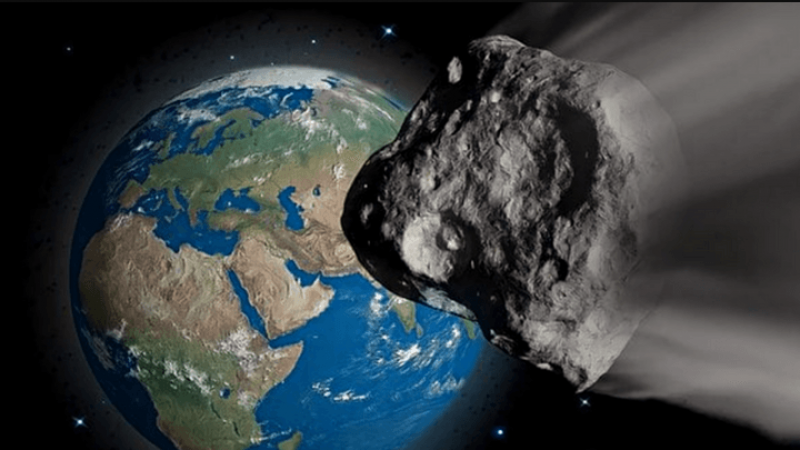
USA: An asteroid named 2022 WU11, which is 98 feet wide and potentially dangerous, is currently heading towards Earth.
The planet is moving towards the blue planet with a high speed of 38,026 kmph. At a distance of 4.4 million kilometres, it will make its closest approach to the planet. The space agency's Jet Propulsion Laboratory (JPL) is closely monitoring the motion of the space rock.
A collision between an asteroid and Earth can be fatal and have serious consequences. Collision should be avoided as it is a serious threat to the living beings of the earth.
Also Read: Famous blogger murdered during live streaming, fans shocked
Asteroid collision avoidance techniques are being developed by NASA and other space and defense agencies, which now routinely track the paths of near-Earth asteroids.
According to sky.org, asteroid 2022 WU11, a member of the Apollo group, was just discovered on November 27.
According to NASA's JPL, this aircraft-sized asteroid is moving towards Earth at a speed of 38,026 kilometers per hour.
Until this rock passes near the Earth, the space agency will keep an eye on its speed.
Also Read: 4 are killed in a militant attack on a police station in northwest Pakistan
The asteroid will pass in front of the Earth at a distance of 44 lakh km. Astronomers classify any object as "potentially hazardous" if it is 7.4 million kilometers or less from Earth's radius.
Despite being so close, NASA predicts that the sky rock will pass Earth safely if its course is left unchanged.
NASA reports that as of November 2022, 30,503 near-Earth asteroids are known, and 2,304 of them are potentially large enough to reach Earth.
The main asteroid belt contains about 1.5 million asteroids with a diameter greater than 1 kilometer, which lies between Mars and Jupiter.
Also Read: Final days of biodiversity talks leave many issues unresolved
The space agency uses technologies from the ground and the sky to continuously scan the sky for near-Earth objects (NEOs).